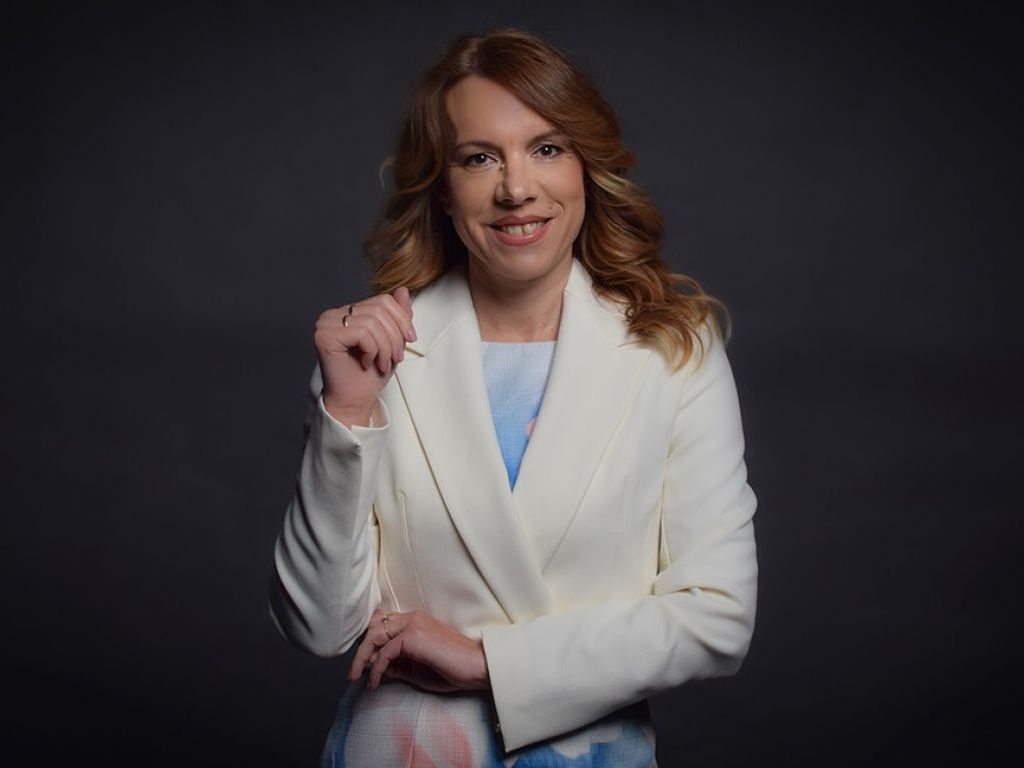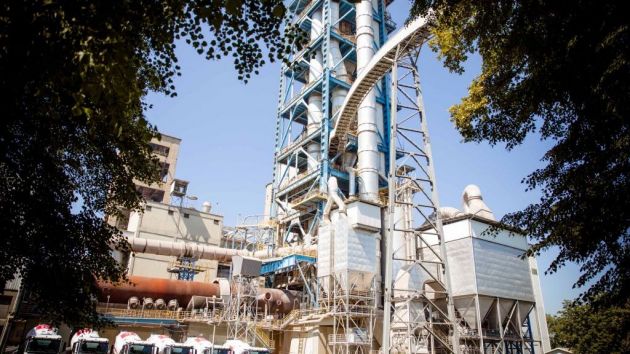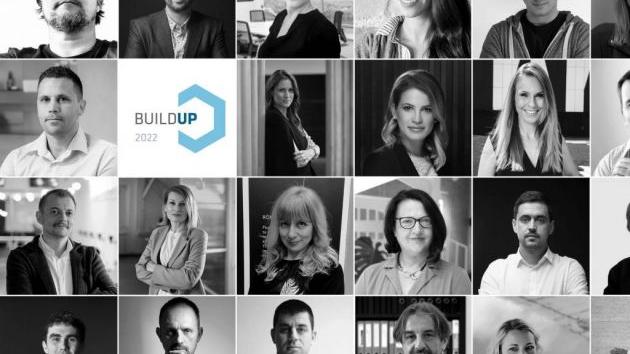Tijana Koprivica, Chief Business Sustainability Officer at Delta Holding – Agriculture is the most difficult sector for the green transition
Source: eKapija
 Thursday, 27.04.2023.
Thursday, 27.04.2023.
 06:01
06:01
 Thursday, 27.04.2023.
Thursday, 27.04.2023.
 06:01
06:01
(Photo: Miodora Bozar, Delta Holding)

The present energy crisis has further accelerated Delta Holding`s plans to switch to renewable energy sources. Tijana Koprivica, Chief Business Sustainability Officer at Delta Holding reveals that the company has so far built 9 solar power plants and it`s halfway through to achieving the goal to use at least 60% of energy from renewable energy sources by 2030, in an interview with eKapija portal. We also talked about the Digital Village project in Mokrin, opening of Sava Center and the green transition in various sectors this company operates in.
eKapija: The energy crisis hasn`t had the same effect on everyone – while some companies decided to temporarily stop the green transition process, others have, in contrast, understood the significance of energy self-sufficiency. How did the energy crisis affect the goals of your company?
– The energy crisis has further accelerated the realization of our strategic plans to switch to renewable energy sources. So far, we have built nine solar power plants, so our corporate building, hotel Intercontinental in Ljubljana, four factories, two cooling plants and the Napredak farm are already powered with electricity from renewable energy sources. At the moment, the solar panels on our shopping mall in Varna are being installed and we are also considering expanding our production capacities and building solar power plants on ten new locations. We are planning to build a biomass power plant as well. We believe energy independence from the supplier and the prudent management of energy are very important for a sustainable business.
eKapija : How close are you to reaching the goal of using at least 60% of energy from renewable sources by 2030?
– We are always setting ambition business goals, that`s why Delta is the leader in the market. We aren`t near the finish but we are halfway there. We will continue to analyze all possibilities for utilizing solar ,wind, geothermal and biomass energy in the coming period. Hydrogen is also talked about a lot as a future fuel, so we are counting on scientific research and technological achievements that will make this fuel accessible.
eKapija: What results has the “Digital Village” project yielded? Are Serbian farmers ready for digitalization?
– We are pleased with the progress of the project. We have continued organizing lectures for farmers producers. We have discussed variable-rate fertilization that helps us conserve resources and soil for the future generations and the latest digital platform such as E-agrar. Our partners from the Biosense Institute have made it possible to record certain parcels of land of project`s participants with drones. The said lectures and practical exercises,such as recording parcels with drones and then analyzing the collected data help farmer learn something new and to overcome prejudices related to new technologies and digitalization. Our people are inclined to believe that digitalization of agricultural production is only reserved for big companies and that smaller producers aren`t able to afford them. Our viewpoint is that modernization and digitalization largely pays out in the long run because primarily, it makes work processes easier and saves time and money.
eKapija: The renovated Sava Center is expected to open soon and as it was announced, it will become a a part of a very small group of congress centers with a Green building certificate. What innovations in green building will the renovated Sava Center introduce?
– Sava Center will completely comply with the most demanding global sustainability standards. The new façade will have the highest energy efficiency level and the latest technical and technological solutions will be used for heating, cooling and ventilation systems. Solar panels are already being installed on the roof of the building. It also implies optimal use of water as the most important resource, as well as a comprehensive waste management process. The project is fully compliant with EU Taxonomy criteria, and the facility will also have a BREEAM certificate.
eKapija: Your company is present in various sectors like food production, real estate, e-commerce. What has experience shown you: in which area is green transition easiest to achieve – agriculture construction, energy, trade?
– I couldn`t say where the shift towards the green economy has been the easiest because every activity has its challenges. At the moment, it is perhaps easiest to build green facilities, thanks to the latest technical and technological achievements in development of construction materials and technological systems.
What I could say for certain is that the agriculture has proven to be the most difficult sector for the green transition. Mostly because of the intensive use of fuels, followed by the greenhouse gas emissions from animal farming, fertilizers and the said fuels used in agricultural machinery.
Tags:
Delta Holding
Tijana Koprivica
Delta solar power plants
Mokrin digital village
energy crisis
Napredak farm
Intercontinental hotel in Ljubljana
renewable energy sources
digitalization of agriculture
recording land parcels with drones
Biosense institute
modernization of agriculture
green building
sustainable building
special edition newsletter
Green Transition Road to Success
Comments
Your comment
Naš izbor
Most Important News
Full information is available only to commercial users-subscribers and it is necessary to log in.
Follow the news, tenders, grants, legal regulations and reports on our portal.
Registracija na eKapiji vam omogućava pristup potpunim informacijama i dnevnom biltenu
Naš dnevni ekonomski bilten će stizati na vašu mejl adresu krajem svakog radnog dana. Bilteni su personalizovani prema interesovanjima svakog korisnika zasebno,
uz konsultacije sa našim ekspertima.


 Izdanje Srbija
Izdanje Srbija Serbische Ausgabe
Serbische Ausgabe Izdanje BiH
Izdanje BiH Izdanje Crna Gora
Izdanje Crna Gora


 News
News












